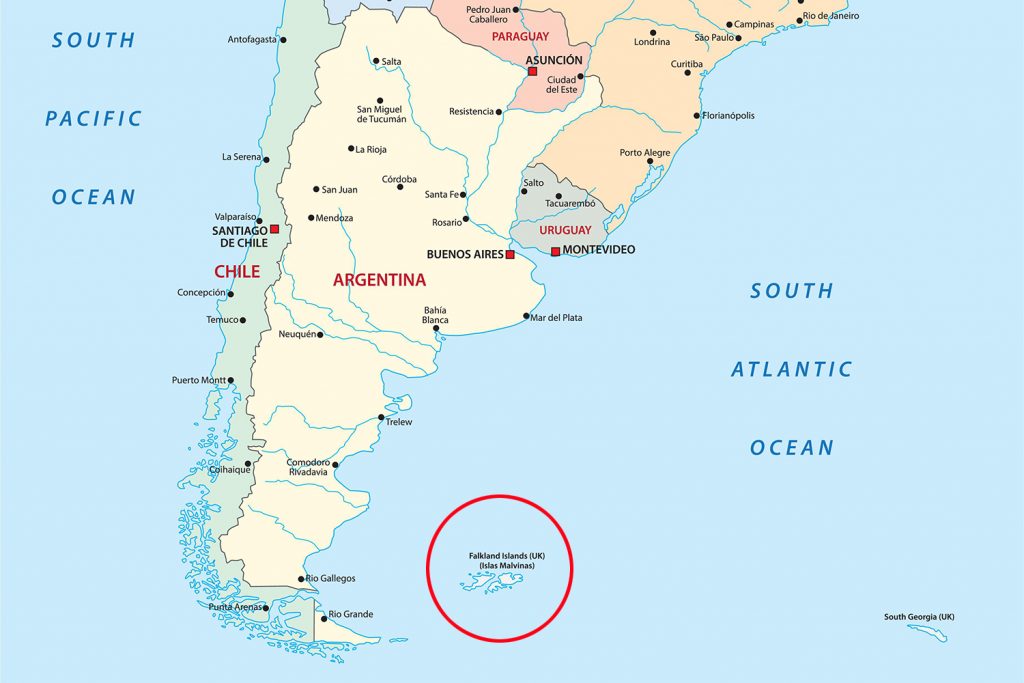
No end of 2019 began the operation of a commercial air route between São Paulo and the Malvinas Islands. This flight is not simply the launch of yet another route for commercial exploration, but one more step - almost symbolic - on an important change taking place between Argentina and the Malvinas Islands (or Falklands, depending on the point of view).
During the 12 years of the Néstor Kirchner and Cristina Fernández governments (2003 a 2015) the relationship between Argentina and the United Kingdom, around the Malvinas / Flaklands was more dependent on the discussion of sovereignty and the increasing militarization of the South Atlantic. Under the government of Mauricio Macri, there was a tendency to change this form of relationship. Already in 2016 the Foradori-Duncan agreement was concluded (https://negociacionytomadedecisiones.files.wordpress.com/2018/05/01_acuerdo-foradori-duncan.pdf), which opened space for new forms of relationship between the two countries and, like this, among other countries. It is in this context that the air route operated by the LATAM company (not argentina, not british) starts to work.
But the issue goes beyond the commercial dimension or even the search for the easing of political-military tension between Argentina and the United Kingdom.
The Western South Atlantic (which is equivalent to the American side of this ocean) has only two border actors: Argentina and Brazil. At the same time, the presence of two other extra-regional actors is perceived: the United States and the United Kingdom. While the United States has an important naval presence, the UK has a presence via the Falkland Islands.
In times of world peace and considering the region of the South Atlantic Ocean as a traditionally peaceful region, why maintaining the presence of extra-regional powers is important? An important part of the answer is in trade.
Estimate-I know 80% of oil imported by Europe transits this ocean, as 40% of US imports. To get an idea, it would be something like 200 thousand ship trips across this ocean annually.
The Atlantic is also one of the privileged paths, especially considering North America and Europe, for access to Antarctica. Is, in its turn, in addition to being a territory with many mineral resources and even biodiversity, has little more than 70% of global freshwater reserves in the form of ice.
The control of the Malvinas has proved to be very important in geopolitical terms due to its location. So important that it has an air base (Mount Pleasant) with a landing strip with 1500 meters, which allows the landing of large planes, even though we are talking about a population that does not reach the 3 thousand inhabitants. There is also a deep water port there (Mare Harbour), which allows the anchoring of large ships and even submarines (who are constantly displaced to the region).
Malvinas must be understood within an even greater geostrategic scenario. This archipelago is part of a sequence of military positions present on three islands: Santa Helena, Ascension and Tristan da Cunha (https://pt.wikipedia.org/wiki/Santa_Helena,_Ascens%C3%A3o_e_Trist%C3%A3o_da_Cunha). It cannot be said that they are military bases, but they are part of an important structure that connects South America to Africa.
Even so, it is not possible to understand the issue of the region just by looking at the British military presence in the region. While the United States reactivated in 2008 the so-called IV Fleet (https://pt.wikipedia.org/wiki/Quarta_Frota_dos_Estados_Unidos), the Lisbon Treaty and the European Constitution consolidated the idea that the Malvinas were officially British overseas territories and, therefore, European territories. The sum of these movements shows a more coordinated search for presence in the region, what is demanded under NATO.
Although mineral resources exist, mainly hydrocarbons, and living marine resources in the region, these resources are not able to explain the special interest in the place. Investments and occupancy profile show an area more geared to its geopolitical location than a region to be exploited commercially..
Brazil needs to understand that the Malvinas Islands are more than just a dispute far from our reality, between Argentina and the United Kingdom, trying to control some islands in the South Atlantic. Your control, as well as the way in which the UK and the United States have been operating show the importance for regional control.
